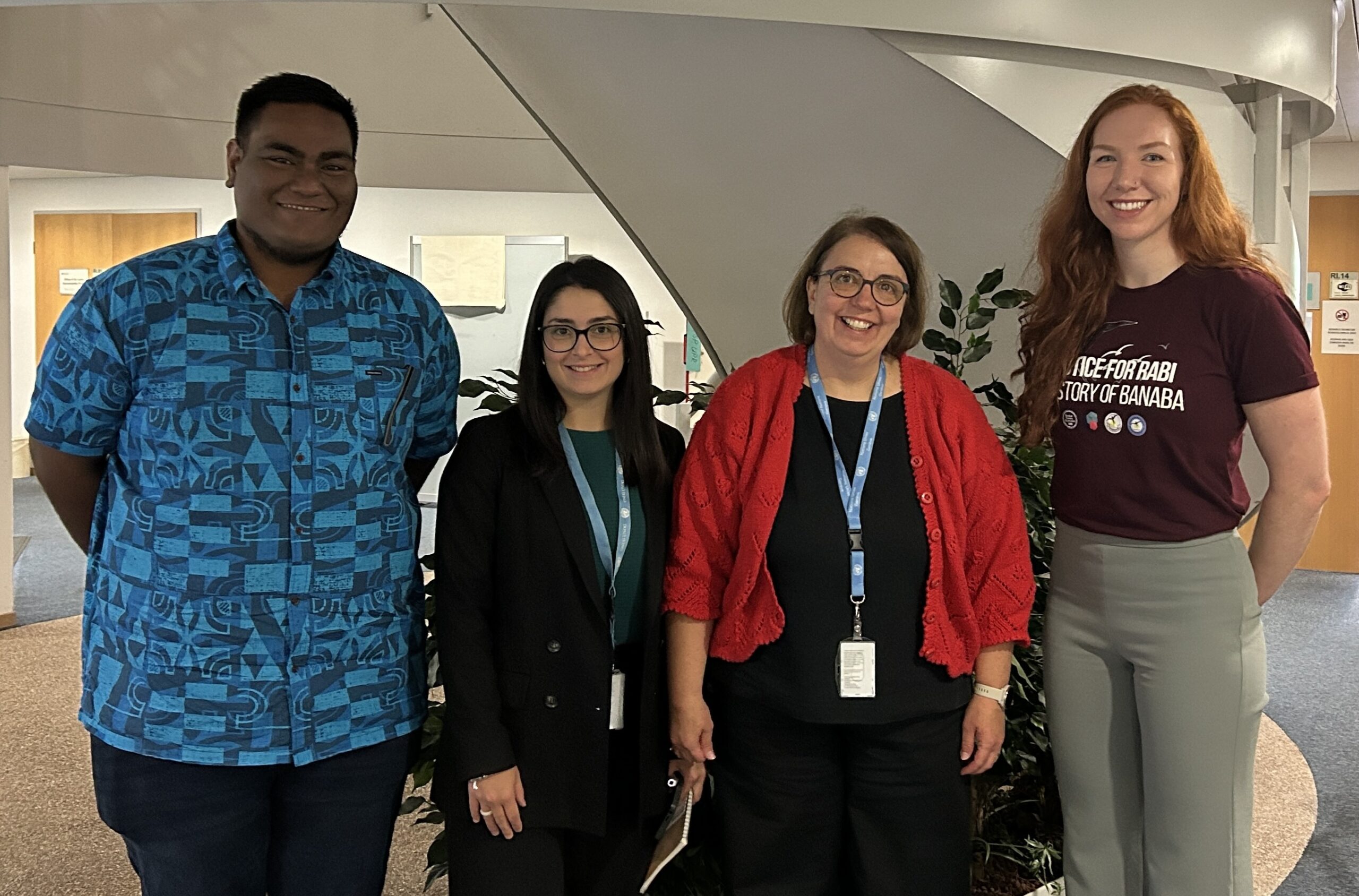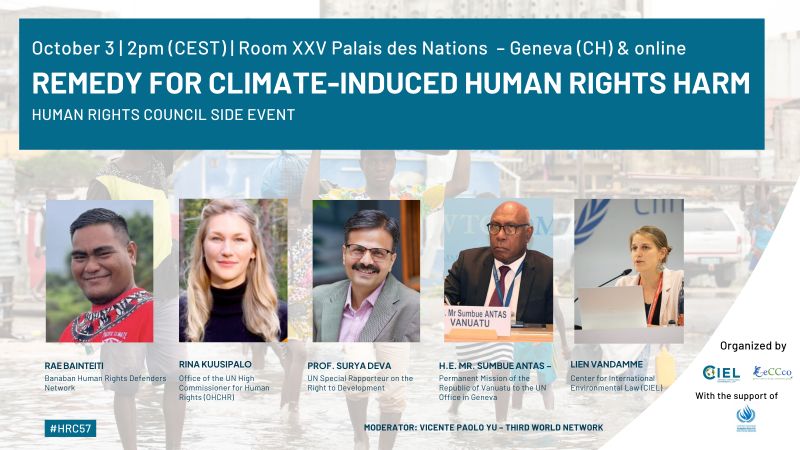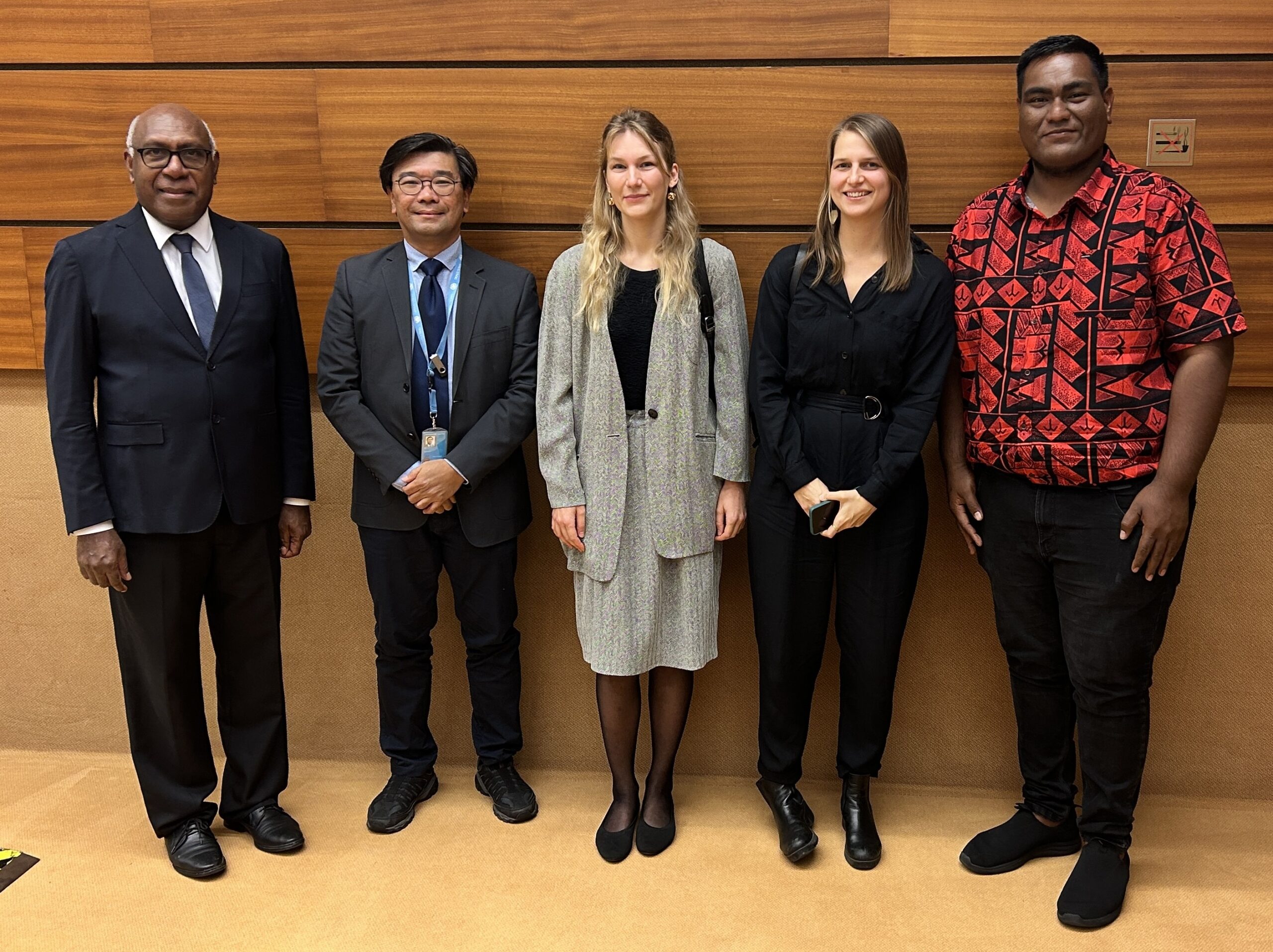ICAAD and the Banaban Human Rights Defenders Network team up to bring human rights concerns to the international stage

At ICAAD, we believe in dismantling discriminatory systems and advocating for the rights of marginalized communities. Recently, we joined our long-time partners, the Banaban Human Rights Defenders Network (BHRDN) in Geneva to raise awareness about the serious human rights issues affecting the Banaban community on Rabi Island, Fiji. As Fiji prepares for its Universal Periodic Review (UPR) at the United Nations, the voices of ethnic minorities like the Banabans must be heard.
For those unfamiliar with the UPR, it’s a unique process that occurs every four and a half years, where the human rights records of UN member states are reviewed. This mechanism allows countries to be held accountable for their human rights commitments and provides an opportunity for other states to make recommendations on how they can improve.
A Displaced Community Facing Multiple Crises
The Banaban people’s story is one of displacement and resilience. In 1945, they were forced to leave their ancestral home, Banaba Island (now part of Kiribati), due to phosphate mining by the British Phosphate Commission (jointly owned by the UK, New Zealand, and Australia). They were displaced to Rabi Island, Fiji, but the Fiji government has failed to uphold its human rights obligations to the community. The dissolution of the Rabi Council of Leaders in 2013 left them without political representation, and an unelected Administrator has governed the island ever since. Without democratic governance, the Banaban community’s ability to express dissent or advocate for their rights has been severely curtailed.
ICAAD and BHRDN’s advocacy at the UPR aimed to shine a light on these injustices and demand meaningful change. Together, we submitted a report outlining the human rights violations faced by Banabans, emphasizing three key areas of concern:
- The Protection of Human Rights Defenders: We highlighted the need for impartial investigations into cases of harassment and intimidation of those standing up for their communities. Human rights defenders on Rabi have faced retaliation for opposing the revival of extractive industries on Banaba, a disturbing trend that threatens the safety and freedom of activists.
- Restoration of Democratic Governance: The Banaban community has been without fair representation for over a decade. Our advocacy calls for the restoration of the Rabi Council of Leaders through democratic elections, allowing Banabans to regain control over their own governance.
- Combatting Discrimination Against Ethnic Minorities: Systemic discrimination against Banabans must end. We are urging the Fijian government to collect and publish development data disaggregated by ethnicity, which would reveal the extent of disparities and ensure that no group is left behind in policy-making and resource allocation.
Rae Bainteiti also spoke at a side event to the UN Human Rights Council 57th session on Remedy for Climate-Induced Human Rights Harm, organized by the Center for International Environmental Law and the Geneva Climate Change Consultation Group (GeCCco). You can watch the recording here.

This insight brings to light the broader challenges Banabans and other Pacific communities face, reinforcing the urgent need for international attention and action to address these overlapping injustices.

Fiji’s UPR represents a critical moment to shine a light on the struggle of the Banaban people on an international stage. As ICAAD and BHRDN engaged with UN member states in Geneva, our goal was to make Banaban voices heard in a space where meaningful recommendations can be made.
While Fiji has made progress in other areas of human rights, the Banabans’ situation is a stark reminder of the work that remains. The international community must push for the Fijian government to restore political representation on Rabi Island and protect human rights defenders who risk their safety for their community’s future.
What Comes Next
At ICAAD, we know that change doesn’t happen overnight. But by raising these issues and engaging with international stakeholders, we’re laying the groundwork for accountability and action. Our advocacy doesn’t stop in Geneva; we will continue to amplify the Banaban community’s struggle and work alongside BHRDN to push for justice.
As we look ahead, it’s essential that global attention on these human rights violations grows. The Banaban community deserves the right to self-govern, access to essential services, and the protection of their human rights defenders. It’s our collective responsibility to ensure these rights are realized.
Join Us in Advocating for Banaban Rights
We invite you to learn more about the situation on Rabi Island and get involved in our advocacy efforts. By working together, we can help dismantle the unjust systems that marginalize communities and push for a more equitable society.
